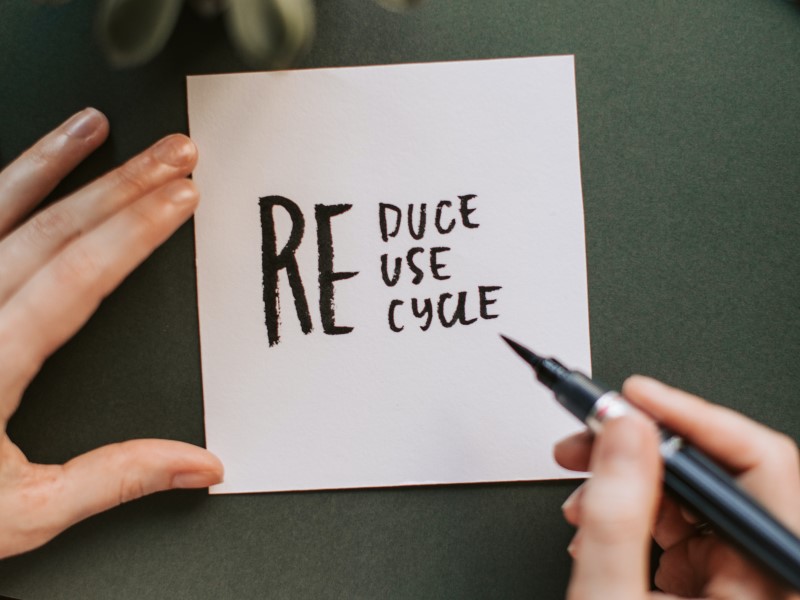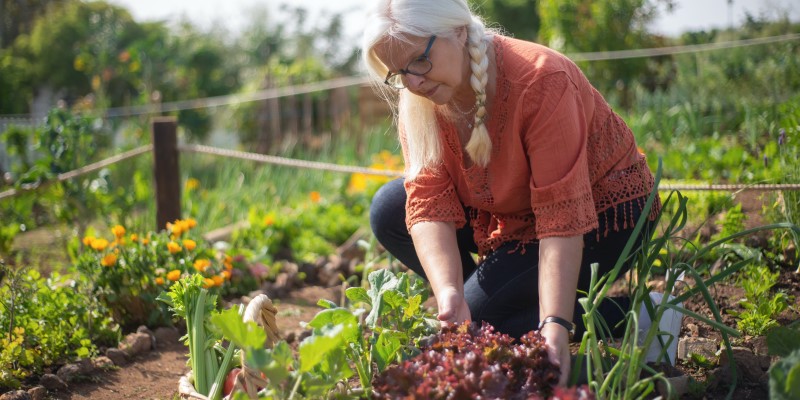We live in a world where our actions profoundly impact the environment. It’s time to take responsibility and make a change for the better. This article will explore 9 easy ways to incorporate sustainable living into your lifestyle. Because small actions can lead to big results. So, let’s roll up our sleeves, put on our green thinking caps, and embark on a journey towards a more eco-friendly lifestyle!
Like drops of water that eventually form an ocean, each simple step we take towards sustainability creates a significant difference. From reducing waste through recycling and reusing to conserving energy at home and opting for eco-friendly transportation, we have countless opportunities to make conscious choices that benefit both ourselves and the planet. When we embrace these practices, we reduce our carbon footprint and inspire others around us to follow suit. So let’s dive into these 9 easy ways together and turn sustainable living into an everyday reality.
Key Takeaways
- Small actions can make a big impact on the environment.
- Choosing sustainable brands and products can reduce waste and conserve resources.
- Incorporating minimalism into daily routines can lead to less stress, reduced waste, and lower consumption levels.
- Educating and advocating for sustainable practices is crucial in promoting positive change.
Table of Contents
Reduce, Reuse, Recycle
You can think of reducing, reusing, and recycling as the three wise muses that guide you towards a more sustainable lifestyle. These three actions are simple yet powerful ways to minimise waste and conserve resources. If we consciously reduce our consumption, we can limit the amount of waste produced in the first place. For you, this might mean that you only buy what you truly need. Or maybe try avoiding single-use items. Maybe you can look at digital alternatives to your magazine or book instead of a physical version. Reusing is another fantastic way to make a positive impact on the environment. Don’t just throw things away after a single use. Before throwing it in the bin, you might be able to find creative ways to give that item a second life. That could mean repurposing old containers for storage or donating clothes to charity instead of discarding them. Every act of re-use helps to reduce our carbon footprint.
Recycling is perhaps one of the most well-known methods of sustainable living. It involves transforming used materials into new products rather than sending them to landfill sites, which would take years to decompose. It really makes a difference when you properly sort and recycle items such as plastics, paper, glass, and metals. By doing this, we can help save energy and natural resources while reducing pollution caused by manufacturing new materials from scratch. Your local council will undoubtedly have lots of information, either online or in a newsletter you can probably pick up when you’re at the library next. Take a moment or two to read about local recycling programs and guidelines to ensure your actions are effective.
One person or family buying into the premise of reduce, reuse, recycle might seem insignificant when you consider the billions of people in the world. You might even think, ‘why bother, it won’t make a difference’. Well, the truth is it does. Yes, it’s naïve to think that everyone will start doing the right thing overnight and the world will change immediately. But you don’t have to worry about everyone – worry about you or your own family. In this way, you can do your part in conserving resources and protecting our planet for future generations.

Conserve Energy at Home
Conserving energy at home has a two-fold effect – it can have a significant impact on the environment while at the same time keeping money in your back pocket. There are many simple and easy ways to reduce energy consumption without sacrificing comfort or convenience. One of the first things we can do is switch to energy-efficient light bulbs throughout our homes. These bulbs use less electricity and last longer than traditional incandescent bulbs, making them a cost-effective choice.
Another way to conserve energy is by adequately insulating our homes. Adding insulation to walls, floors, and attics can prevent heat loss in the winter and keep cool air inside during the summer months. This way, you don’t need to rely as much on heating and cooling systems to work harder. And that reduces energy usage and costs – more cash is saved! You might even like to consider installing programmable thermostats, allowing you to set specific temperatures for different times of the day. This ensures that you’re only using energy when necessary.
Conserving energy at home isn’t just about saving money; it’s about being responsible for the needs of our planet. Suppose you can take small steps like switching off lights and unplugging electronics when they’re not being used and using natural lighting whenever possible. In that case, we can all do our part to reduce greenhouse gas emissions and combat climate change. Every action counts towards creating a more sustainable future for ourselves and future generations. Let’s embrace these easy changes as opportunities to impact our wallets and the environment positively!
These are just a few ideas – check out a comprehensive list at How to Save Energy in your Home.
Opt for Eco-Friendly Transportation
Choosing eco-friendly transportation options is not only beneficial for the environment but also allows us to take part in creating a greener and healthier future. Can you incorporate a sustainable mode of transport like walking, biking, or using public transport into your daily life? Maybe you can leave the car at home once or twice a week? Even this can significantly reduce our carbon footprint and reduce air pollution. Walking or cycling helps us stay physically active and reduces traffic congestion and noise pollution in our neighbourhoods.
Using public transport is a great way to positively impact the environment. Trains, buses, and trams are more fuel-efficient than individual cars, resulting in lower greenhouse gas emissions per passenger. By choosing public transport over driving alone, we can lower traffic congestion and save on wasted time (and frustration!) spent searching for parking spaces. Carpooling or ridesharing with friends or workmates is also an excellent option that promotes social interaction while reducing the number of vehicles on the road.

When it comes to longer distances, consider taking trains instead of planes whenever possible. Trains consume less energy per passenger mile compared to aeroplanes and produce fewer emissions. Book non-stop flights if necessary, as they are more efficient than multiple layovers. Of course, electric vehicles are becoming increasingly popular. Have you seen the price of petrol lately? And their lower environmental impact is a huge bonus too.
By actively choosing eco-friendly transportation options like walking, cycling, using public transport or electric vehicles – we become active participants in building a sustainable future for ourselves and future generations. Let’s embrace these alternatives; by our actions, we might even inspire others to do the same. Together, we can create cleaner air quality in our cities and reduce our dependence on fossil fuels while enjoying healthier lifestyles at the same time!
Choose Sustainable Food Practices
As for sustainable food practices, we can’t have our cake and eat it too. We need to make conscious choices that benefit our health and reduce our environmental impact. A straightforward way to do this is by choosing locally sourced and organic produce. By supporting local farmers, we reduce the carbon footprint associated with the long-distance transportation of fruits and vegetables. Organic farming practices also prioritise soil health, biodiversity, and water conservation, making it a more sustainable choice for the planet.
In addition to choosing local and organic produce, reducing our meat consumption can significantly impact the environment. Livestock production is a major contributor to greenhouse gas emissions and deforestation. Incorporating more plant-based meals into our diet not only helps lower our carbon footprint but also promotes better animal welfare and improves personal health. It’s about finding balance – enjoying the occasional indulgence while embracing more sustainable options in our daily food choices.
Embrace Minimalism
Imagine a life where you have fewer possessions but more freedom, where the focus is on experiences rather than material things. This is the essence of embracing minimalism. Adopting a minimalist lifestyle can greatly reduce your consumption and environmental impact while simultaneously finding greater fulfilment in life. Minimalism encourages us to consider our purchases carefully, only acquiring items that add value or joy to our lives. It challenges the notion that happiness comes from accumulating stuff and instead promotes the idea that true happiness lies in simplicity.

Embracing minimalism means decluttering our living spaces and letting go of unnecessary belongings. It’s about keeping only what we truly need and love, creating a sense of calm and order in our surroundings. By doing so, we free up physical and mental space, allowing us to focus on what truly matters in life – relationships, personal growth, and experiences. Minimalism extends beyond physical possessions to other areas of our lives, such as time management and digital clutter. By being intentional with how we spend our time and reducing distractions like excessive screen time or commitments that don’t align with our values, we can create more meaningful moments and live a more sustainable lifestyle overall.
Incorporating minimalism into your daily routine may require some initial effort as it involves evaluating your current possessions and making conscious choices moving forward. However, the rewards are immense – less stress, increased clarity, reduced waste, and lower consumption levels – leading to a more sustainable way of living. It might not be for everyone, but it is a choice people make and is certainly one way to live sustainably.
Save Water
Conserving water is like preserving a precious resource that sustains life. Every day, we take water for granted and use it for various activities such as drinking, cooking, bathing, and cleaning. However, it is important to be mindful of our water usage and find ways to reduce it. By making small changes in our daily routine, we can significantly impact conserving this valuable resource.

One easy way to save water is by fixing leaks in our homes. A dripping faucet or a leaking pipe may seem insignificant, but they can waste litres of water over time. Taking the time to repair these leaks saves water and reduces our utility bills. Another simple step is turning off the tap while brushing teeth or washing dishes. It may seem like a small action, but it can save up to 12 litres of water every time you brush! Additionally, using a dishwasher instead of handwashing dishes can also help conserve water, as dishwashers are designed to be more efficient in water usage.
By being conscious of our daily habits and making sustainable choices, we can contribute towards saving this vital resource. Conserving water not only benefits us individually but also has positive effects on the environment as a whole. Let’s take action today and embrace these easy ways to save water – because every drop counts!
Support Sustainable Brands and Products
Embrace the opportunity to support sustainable brands and products, as they are a drop in the bucket when it comes to making a meaningful impact on our environment. By consciously choosing eco-friendly options, we can reduce waste, conserve resources, and promote a more sustainable future. Sustainable brands and products are designed with the planet in mind, using renewable materials, minimising carbon emissions, and supporting fair labour practices.
When we opt for sustainable brands and products, we actively participate in the movement towards a greener world. Whether purchasing clothing made from organic cotton or investing in energy-efficient appliances for our homes, every choice has an impact. These companies often prioritise transparency and ethical practices throughout their supply chains. They strive to minimise waste production by using recycled materials or easily recyclable or biodegradable packaging.
Please take a look at our article on Ethical and Sustainable Shoe Brands. These are brands that prioritise using vegan, plant-based and recycled materials!
Whenever we support sustainable brands and products, we send a powerful message to other businesses that sustainability matters to consumers. As demand increases for these eco-conscious alternatives, more companies will be encouraged to adopt sustainable practices. Together, we can create positive change through our collective choices as consumers and inspire others to do the same. So let’s consciously seek out those green labels on our next shopping trip – every small action counts towards building a better future for our planet.
Create a Sustainable Garden or Green Space
Transform your outdoor space into a sustainable garden or green oasis where you can connect with nature and contribute to the health of our planet. Creating a sustainable garden adds beauty to your surroundings and plays a crucial role in supporting biodiversity and improving air quality. By incorporating eco-friendly practices such as composting, using organic fertilizers, and planting native species, we can create an environment that benefits us and the ecosystem.

One easy way to start is by composting kitchen scraps and yard waste to create nutrient-rich soil for your garden. Composting reduces landfill waste and provides natural fertiliser for your plants. Additionally, choosing organic fertilisers over synthetic ones helps minimize harmful chemical runoff into water sources. Another important aspect of creating a sustainable garden is selecting native plants that are well-adapted to the local climate and require less water and maintenance. These plants provide food and shelter for native wildlife while promoting biodiversity in your backyard.
Incorporating sustainable gardening practices benefits the environment and creates a peaceful retreat where you can relax and unwind. Imagine entering a lush green space with vibrant flowers buzzing with bees and butterflies. Your sustainable garden becomes an oasis of tranquillity amid the chaos of modern life. It allows you to reconnect with nature, reduce stress, and improve overall well-being. So why wait? Get out there are create your zen oasis!
Educate and Advocate
We can all positively impact the environment by learning and spreading awareness about sustainable practices. Education is crucial in promoting sustainable living and inspiring others to take action. By educating ourselves about the benefits of sustainable practices such as reducing waste, conserving energy, and using eco-friendly products, we become more knowledgeable advocates for change.
We can educate others by sharing our knowledge through various platforms such as social media, community workshops, or even casual conversations with friends and family. By explaining the importance of sustainable living and providing practical tips on incorporating it into daily routines, we empower others to make conscious choices that benefit both themselves and the planet. Additionally, sustainability advocacy involves supporting initiatives and organizations promoting eco-friendly practices. This can be done by participating in local clean-up events or joining environmental campaigns that strive for policy changes to protect our environment. Through education and advocacy, we can create a collective movement towards a more sustainable future.
Frequently Asked Questions
Q: What is sustainable living?
A: Sustainable living is a lifestyle that attempts to reduce an individual’s or society’s use of Earth’s natural resources and one’s personal resources. It involves making conscious choices and adopting practices promoting a more sustainable life in areas such as energy use, food waste, transportation, etc. Sustainable living aims to live more sustainably and minimize our environmental footprint.
Q: How can I incorporate sustainable living into my lifestyle?
A: There are several easy ways to incorporate sustainable living into your lifestyle. Some examples include reducing energy consumption, using reusable bags and bottles, practising recycling, using public transportation, supporting sustainable fashion, buying local products, and using renewable energy sources.
Q: What are some ways to live more sustainably at home?
A: There are many ways to live more sustainably at home. You can start by reducing energy use by turning off lights when not in use, using energy-efficient appliances, and insulating your home. Additionally, you can minimize water waste by fixing leaks, taking shorter showers, and collecting rainwater. Finally, you can reduce waste by practising recycling, composting food scraps, and using reusable products.

Q: How can I reduce plastic waste in my daily life?
A: To reduce plastic waste in your daily life, you can start using reusable bags when shopping, opting for a refillable water bottle instead of single-use plastic bottles, and saying no to plastic straws. You can also choose products with minimal or no packaging and make an effort to reprocess any plastic waste you do generate.
Q: What is sustainable fashion?
A: Sustainable fashion refers to clothing, shoes, and accessories that are produced sustainably, taking into account their environmental and social impacts. This can include using organic or recycled materials, minimizing waste and emissions during production, and ensuring fair labour practices.
Q: How can I practice sustainable living when it comes to transportation?
A: To practice sustainable living when it comes to transportation, you can opt for public transportation, carpooling, biking, or walking whenever possible. These alternatives help reduce CO2 emissions and decrease reliance on fossil fuels.
Q: What are some ways to offset my carbon footprint?
A: There are various ways to offset your carbon footprint. You can support projects that promote renewable energy, participate in tree-planting initiatives, invest in sustainable companies, or purchase carbon offsets. Carbon offsets involve financially supporting projects that reduce or remove greenhouse gas emissions to compensate for your own emissions.
Q: How can I make sustainable choices when buying products?
A: When buying products, you can make sustainable choices by considering their environmental impact. Look for products made from reprocessed or sustainable materials, are energy-efficient, and have minimal packaging. Additionally, support brands and retailers that prioritize sustainable practices and ethical sourcing.
Q: What are the sustainable development goals?
A: The Sustainable Development Goals (SDGs) are a set of global targets established by the United Nations to address social, economic, and environmental challenges. They include goals such as eradicating poverty, promoting gender equality, ensuring sustainable consumption and production patterns, and taking urgent action to combat climate change.
Q: How can I reduce food waste and live more sustainably?
A: To reduce food waste and live more sustainably, you can start planning your meals and grocery shopping carefully to avoid buying more food than necessary. Use leftovers creatively, compost food scraps, and store food properly to extend its shelf life. You can help conserve resources and minimize greenhouse gas emissions by wasting less food.
Conclusion
Together, it can make a difference by reducing, reusing, and recycling. We can conserve energy at home, opting for eco-friendly transportation that dances lightly upon the earth. Let’s choose sustainable food practices that nourish our bodies and the planet.
With a touch of minimalism, we can declutter our lives and embrace a simpler existence. By saving water drop by precious drop, we become guardians of this life-giving resource. Supporting sustainable brands and products is like planting seeds of change in our consumer-driven world.
Let’s create lush gardens and green spaces that bloom with life, offering sanctuary to all creatures, great and small. And as we educate ourselves about sustainable living practices, let us advocate for change, inspiring others to follow in our footsteps.
Together, we are not just dreamers but doers – passionate warriors fighting to preserve our beautiful planet. Each small action we take in our daily routines contributes to a brighter future for generations to come. So let us rise up with hearts ablaze and minds aflame with knowledge – it is time to make sustainability an integral part of who we are.
About the Author

CHARLIE
Hi, my name is Charlie. I’m the founder of Just Organics. I have a background in Environmental Health and am passionate about animal welfare. I have been using organic products for more than ten years and would like to share my love of products made from nature.
I hope you find value in our articles. If there’s anything you’d like us to write about or if you’d just like to connect with us, feel free to send us a message.
